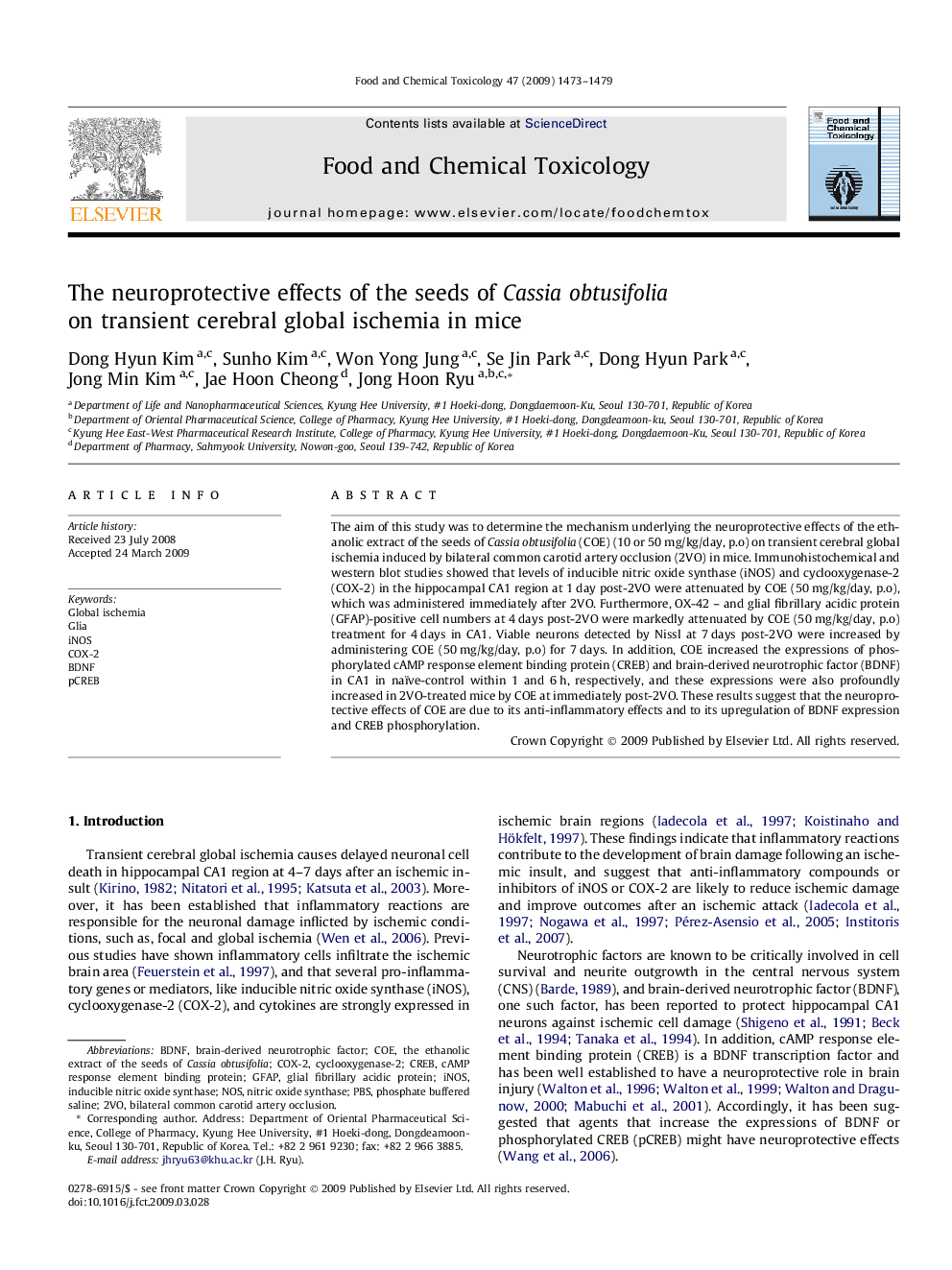| Article ID | Journal | Published Year | Pages | File Type |
|---|---|---|---|---|
| 2586252 | Food and Chemical Toxicology | 2009 | 7 Pages |
The aim of this study was to determine the mechanism underlying the neuroprotective effects of the ethanolic extract of the seeds of Cassia obtusifolia (COE) (10 or 50 mg/kg/day, p.o) on transient cerebral global ischemia induced by bilateral common carotid artery occlusion (2VO) in mice. Immunohistochemical and western blot studies showed that levels of inducible nitric oxide synthase (iNOS) and cyclooxygenase-2 (COX-2) in the hippocampal CA1 region at 1 day post-2VO were attenuated by COE (50 mg/kg/day, p.o), which was administered immediately after 2VO. Furthermore, OX-42 – and glial fibrillary acidic protein (GFAP)-positive cell numbers at 4 days post-2VO were markedly attenuated by COE (50 mg/kg/day, p.o) treatment for 4 days in CA1. Viable neurons detected by Nissl at 7 days post-2VO were increased by administering COE (50 mg/kg/day, p.o) for 7 days. In addition, COE increased the expressions of phosphorylated cAMP response element binding protein (CREB) and brain-derived neurotrophic factor (BDNF) in CA1 in naïve-control within 1 and 6 h, respectively, and these expressions were also profoundly increased in 2VO-treated mice by COE at immediately post-2VO. These results suggest that the neuroprotective effects of COE are due to its anti-inflammatory effects and to its upregulation of BDNF expression and CREB phosphorylation.
